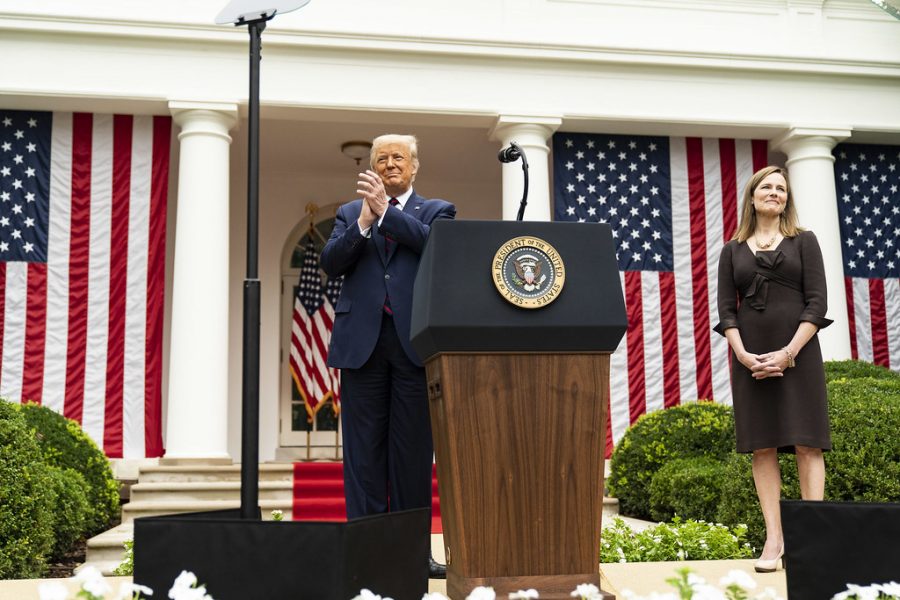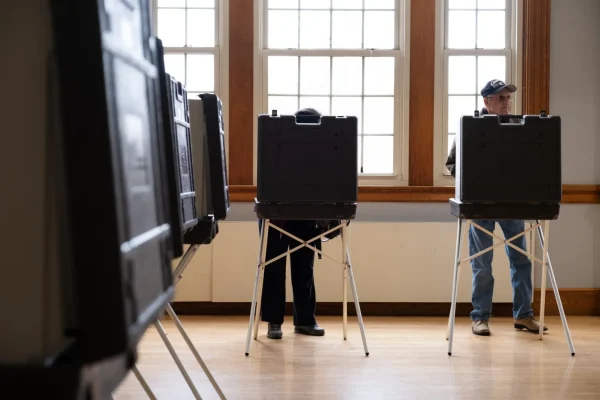Justice Amy Coney Barrett confirmed to the U.S. Supreme Court
On Monday, the Senate voted to confirm Justice Amy Coney Barrett to the U.S. Supreme Court following a frenzied month of Republican action to approve President Donald Trump’s third pick to the court one week before the election, cementing a conservative majority that could continue for decades.
Republicans voted 52-48 to support the ruling, overcoming the Democrats’ opposition.
The vote came less than a week after the Senate Judiciary Committee submitted Barrett’s appointment to the floor on Oct. 22 in a vote that took place amid a veto from all members of the Democratic Committee.
Republican Sen. Susan Collins of Maine, who is in a difficult reelection struggle, was the only GOP senator to cross party lines and vote against the nomination with Democrats after voicing fear that it was too close to Election Day to be deemed a candidate.
The risks in the Supreme Court fight are enormous and come at an incredibly crucial moment in American politics in the run-up to an election in which Congress and the White House are in power. Trump’s selection of a new Supreme Court would mark the third of his term in office – following Neil Gorsuch in 2017 and Brett Kavanaugh in 2018 – offering Republicans a landmark chance to deliver on the primary conservative goal and campaign pledge to reform federal courts by life-long appointments.
The vote was a victory for Senate Majority Leader Mitch McConnell, who drove Barrett’s appointment through the Senate at a record rate to deliver on his promise to replace late Justice Ruth Bader Ginsburg’s seat hours after her death was confirmed on Sept. 17.
Barrett will reach the Supreme Court just in time to hear testimony in the most recent big legal challenge to the Affordable Care Act on Nov. 10. The Republican state attorney general, with the help of the Trump administration, maintains that the individual requirement to provide insurance is unconstitutional after the abolition of the financial penalties by Congress and, as a result, the entire law must collapse. In a recent 60-minute interview, Trump said, “I hope it’s done. It’s going to be too good if they finish it.”
At her confirmation hearings earlier this month, Barrett resisted taking a stand on how she would rule on election-related cases, as well as other pressing topics before the court, including abortion, the Affordable Care Act, gun rights and LGBTQ+ discrimination. Her responses did little to win over Democrats who were still suspicious of her conservative background, first as a law professor and most recently as a judge at the U.S. Court of Appeals for the 7th Circuit.
In the near future, her nomination will be sealed by a 6-3 conservative vote in the highest U.S. judicial body, according to AP.
Barrett is scheduled to take an oath at the White House on Monday night.

Amanda is a senior majoring in communication with a concentration in journalism, and a double minor in political science and English. She has been involved...









